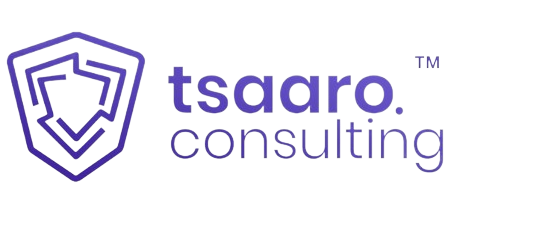We are thrilled to share the results of our latest research endeavor. The objective of this survey was to gauge users’ awareness …
Privacy as a Career

Careers in Privacy: An Examination of the Rapidly Increasing Demand for Privacy Professionals

Introduction
In the modern technological age, protecting one’s data privacy is one of the most important concerns for people as well as corporations. As data breaches and cyber attacks continue to be a prevalent topic of discussion in the media, there is an increased need for specialists who are able to protect sensitive information and ensure continued compliance with standards concerning data privacy. As a direct consequence of this development, individuals now have the opportunity to make the protection of private information their career of choice by becoming privacy analysts. This article will explain the duties of a privacy analyst as well as the procedures that must be taken to become one. Particular attention will be paid to the education and training requirements that must be met in order to be successful in this area.
The Role That Privacy Professionals Play
Those who devote their careers to the study of privacy are committed to protecting the confidentiality of sensitive data and reducing the risk of invasions of personal privacy suffered by individuals. They work in fields as varied as healthcare, finance, and technology, and it is their responsibility to make sure that sensitive data is dealt with in compliance with the law wherever they go to work. The following are the major responsibilities of a privacy analyst:
It is necessary for analysts who specialize in privacy to have the ability to evaluate the risks that might put the confidentiality of private data at risk. This issue may be addressed with the use of techniques such as risk assessments, evaluations of policies and procedures, and data flow studies.
The major responsibility of a privacy analyst is the formulation and execution of privacy policies and procedures that are in accordance with regulatory mandates and professional standards in the relevant sector. Working with the legal and compliance personnel may be necessary in order to match company policies with the aims and values of the organization.
It is the responsibility of analysts responsible with protecting private data to ensure that their personnel receives comprehensive training on the most effective methods for protecting privacy. There is a possibility that it may be necessary for you to develop training materials and hold training sessions for various employee groups.
It is necessary for privacy analysts to have the capacity to examine privacy incidents, communicate with legal and IT departments, and notify affected people and regulatory bodies.
Qualifications Essential for a Career in Privacy Analysis
To be successful in the field of privacy analysis, one needs to possess both technical expertise and the ability to interact effectively with people. The following are some of the most essential skills you’ll need to have in order to be successful in this field:
It is an imperative necessity for privacy analysts to have a solid understanding of privacy rules and regulations, such as the General Data Protection Regulation (also known as GDPR) and the Health Insurance Portability and Accountability Act (also known as HIPAA).
It is necessary for privacy analysts to have expertise in the many technological domains associated to privacy. Encryption, data masking, and access limits are some of the domains that fall under this category.
A critical talent for a privacy analyst to possess is the capacity to evaluate data and recognize potential risks to the privacy of consumers.
Since privacy analysts will need to communicate with executives, attorneys, and IT specialists, having strong communication skills is very necessary for working in this field.
Instruction as well as Research
For those who are interested in entering the subject of privacy analysis, it is vital to have both academic training and practical experience. The following are some steps you should take if you want to become a privacy analyst.
A degree in Computer Science, Cybersecurity, or Information Management is typically required for entry-level positions in the field of privacy analysis. There are additional degree programs in privacy and data security that may be pursued at a number of different schools.
Obtaining experience in a field related to the role: Many analysts go into privacy jobs after acquiring competence in fields like as information technology or compliance. They will be able to meet prominent individuals in their profession as a result of this, which will help them get their foot in the door.
Only two of the numerous qualifications that are available to professionals in the field of privacy are the Certified Information Privacy Professional (CIPP) and the Certified Information Privacy Technologist (CIPT). The achievement of these certifications can serve as evidence of one’s commitment to their field as well as their familiarity with applicable privacy legislation.
Conclusion
To summarize, protecting one’s privacy in the present digital era is becoming a more urgent matter, and there is a growing demand for specialists in the field. Analysts who focus their work specifically on privacy are absolutely necessary for the protection of private information and the administration of privacy laws. For those interested in pursuing a career as a privacy analyst, it is crucial to possess the relevant educational background and training as well as the technical and interpersonal abilities. A bachelor’s degree in the subject matter, some relevant work experience, and certification in the relevant sector are all necessities for a successful career as a privacy analyst.
As the importance of safe data storage continues to climb, it is only reasonable to anticipate that demand for privacy specialists will continue to rise as well. There is a significant need in the corporate world for professionals who have the knowledge and experience to steer companies through the confusing maze of privacy rules and protect personal data. By pursuing jobs in this area, individuals have the opportunity to make major contributions to the field of privacy as well as the preservation of the right of people to privacy in the digital era.
The emergence of privacy as a viable career option is exciting, because it paves the way for numerous opportunities for those who already have the expertise and experience required. As individuals become increasingly conscious of the need of maintaining the confidentiality of personal information in line with the relevant rules and regulations, it is anticipated that there will be a rise in the demand for privacy analysts in the future.
Checkout Other Reports
India is currently witnessing a significant shift in its approach towards data protection with the introduction of the Digital Personal Data Protection …
Tsaaro Consulting and Fractal Analytics undertook an interesting study to understand where Privacy meets Responsible A.I. Our survey went on to be …
As the privacy landscape continues to evolve dynamically and the instances of non-compliance constantly increases, enterprises worldwide are witnessing record-breaking fines under …




